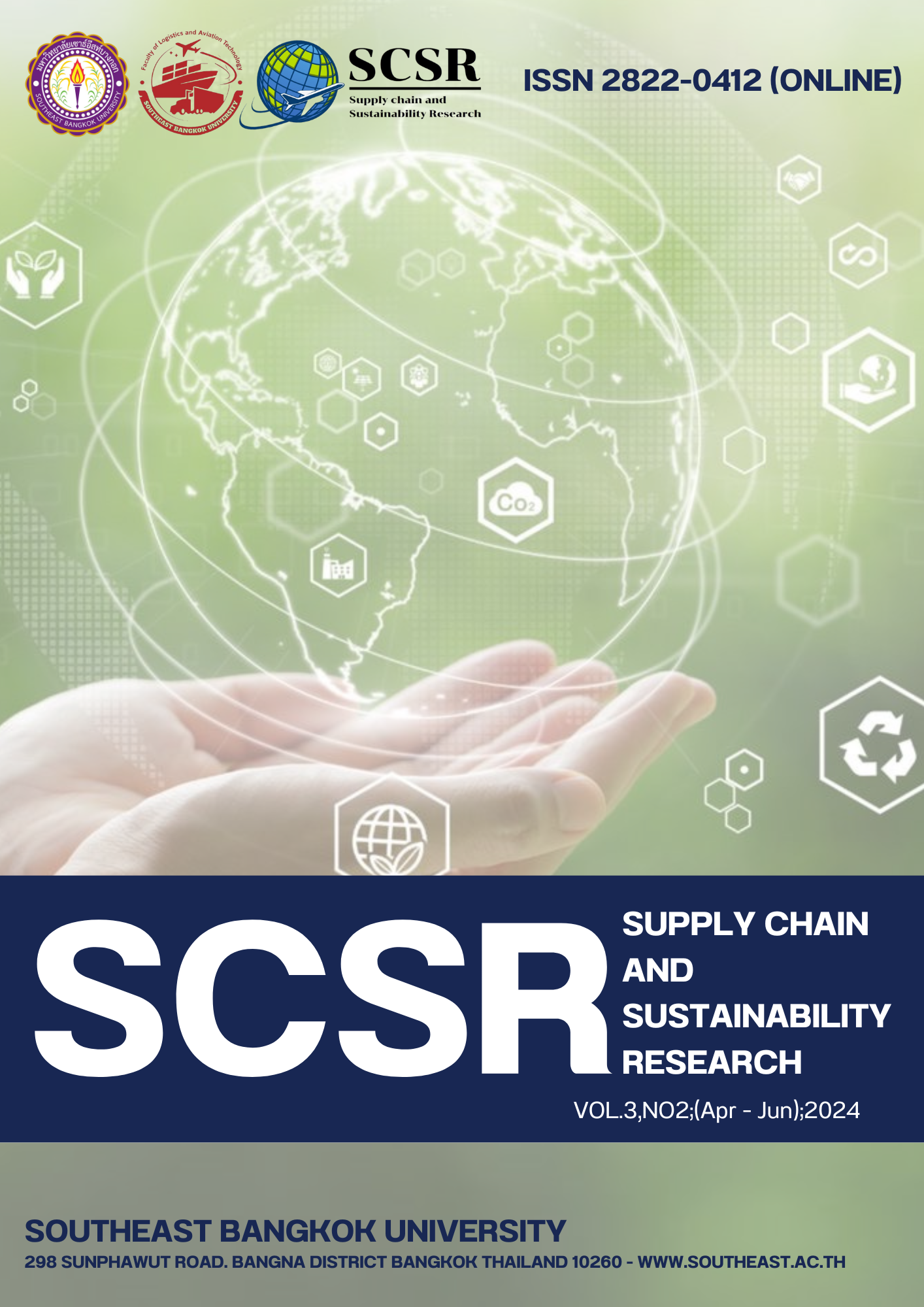Discussion on Consumers' Purchase Intention in Cross-cultural Context: A Conceptual Study of E-commerce Supply Chain as an Example
Main Article Content
บทคัดย่อ
In the rapidly developing global E-commerce landscape, regional cultural differences significantly impact consumer behavior and preferences. This study focuses on how cultural diversity in regions such as China, Western countries, and Southeast Asia affects E-commerce marketing strategies and brand building. It investigates how cultural differences shape consumer demand psychology, purchasing habits, and consumption preferences, and offers strategies to address these differences effectively.
Firstly, the study analyzes cultural differences within China and globally, revealing their effects on consumer trust, purchase decisions, and brand loyalty. It highlights how these differences influence preferences for product types, payment methods, and shopping times. Secondly, it emphasizes the need for personalized products and services and suggests integrating cultural elements to enhance brand image.
The study also stresses the importance of refined marketing strategies. It recommends using data analysis to understand the specific needs of consumers from different cultural backgrounds and employing localization strategies to tailor marketing messages and promotions. Additionally, it advises E-commerce companies to develop brands with regional characteristics and promote cross-cultural exchanges to improve consumer satisfaction.
In summary, this study provides E-commerce enterprises with comprehensive strategies for understanding and managing cultural differences. It offers valuable insights for future E-commerce marketing and brand building, helping platforms meet diverse consumer needs and gain a competitive edge in the global market.
Article Details

อนุญาตภายใต้เงื่อนไข Creative Commons Attribution-NonCommercial-NoDerivatives 4.0 International License.
บทความนี้ได้รับการเผยแพร่ภายใต้สัญญาอนุญาต Creative Commons Attribution-NonCommercial-NoDerivatives 4.0 International (CC BY-NC-ND 4.0) ซึ่งอนุญาตให้ผู้อื่นสามารถแชร์บทความได้โดยให้เครดิตผู้เขียนและห้ามนำไปใช้เพื่อการค้าหรือดัดแปลง หากต้องการใช้งานซ้ำในลักษณะอื่น ๆ หรือการเผยแพร่ซ้ำ จำเป็นต้องได้รับอนุญาตจากวารสารเอกสารอ้างอิง
Alessandro, C., Ellram, L. M., & Claudia, C. (2023). Culture counts: Implications of consumer preferences for more sustainable e-commerce fulfillment. Journal of Cleaner Production.
Hasan, S. O., & Moufeed, A. M. (2024). E-commerce adoption by SMEs and its effect on marketing performance: An extension of the TOE framework with AI integration, innovation culture, and customer tech-savviness. Journal of Open Innovation: Technology, Market, and Complexity, 10(1), 1-21.
Huang, Y. (2022). Influence of cultural differences on the establishment of consumer trust in a socialized cross-border e-commerce. Mobile Information Systems.
Lin, C., & Xie, Y. (2023). Research on Sino-US differences in cross-cultural business communication from the perspective of cultural dimension theory: A case study of English business emails. Academic Journal of Humanities Social Sciences, 19.
Mensah, I. K., Zeng, G., & Luo, C. (2020). The impact of national culture dimensions on the adoption of cross-border e-commerce: A comparative study. International Journal of Information Systems in the Service Sector, 12(4), 91-112.
Rabayah, K. S., Mohammed, M. D., & Alhashmi, S. M. (2022). Cultural factors that influence the adoption of e-commerce: A Palestinian case study. Information Development, 38(4), 623-640.
Zeithaml, V. A., Berry, L. L., & Parasuraman, A. (1996). The behavioral consequences of service quality. Journal of Marketing, 60(2), 31-46. https://doi.org/10.1177/002224299606000203


